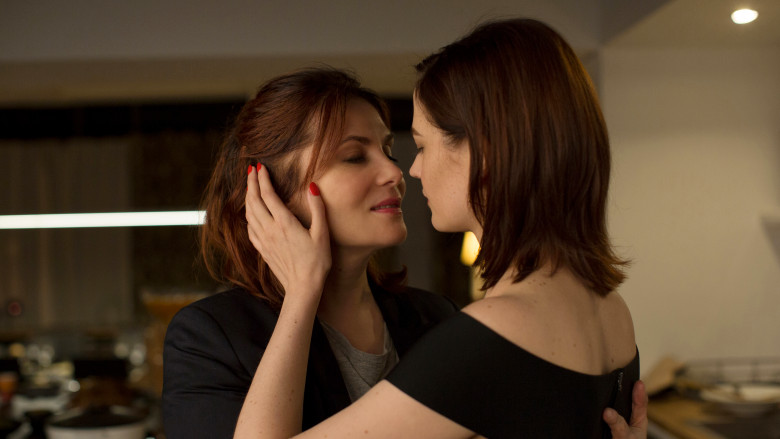Today is the final day of the 70th Cannes Film Festival, before the jury announces the Palme d’Or that caps this anniversary year tomorrow night in a ceremony that will be broadcast throughout Europe. The last competition film was screened for the press yesterday, so this is a day that hangs in suspense. According to the famous secrecy of Cannes, whatever deliberations, deals, tradeoffs and compromises the jury members may make with each other will never be known once jury president Pedro Almodovar and his cohorts emerge from hiding and stand on the stage of the Grande Theatre Lumiere in evening dress.
Down at the level of the average journalist, film buyer, or venue programmer, this festival has been over for days. Suitcases have been rolling down streets in increasing numbers all week, and the film market, often insanely busy to the last, was a ghost town byTuesday night. For those of us left, the last big hope for a brilliant surprise hung on Roman Polanski’s out-of-competition film “Based on a True Story,” premiering today.
“Based on a True Story” is based on the novel by Delphine de Vigan, and starring Polanski’s wife Emmanuelle Seigner (“Venus in Furs”) and Eva Green (“Dark Shadows). It’s the story of a famous author whose life is gradually absorbed by a resentful and ambitious woman who maneuvers to become her best friend. Polanski co-authored the screenplay with French director Olivier Assayas (“Personal Shopper”), and in a strange example of life imitating art, Polanski appears to be subsumed by the directorial style, themes, and visual look of Assayas’ body of work.
In an interview published in the press kit, Polanski reveals that he was first attracted to de Vigan’s novel because it developed themes that correspond with those of several of his own previous films including “Rosemary’s Baby” and “Repulsion.” One can imagine a fantasy scenario in which Polanski was put under a spell so that ambitious rival Assayas could take over, but that’s not a likely explanation for why “Based on a True Story” seems like a blended remake of Assayas’ two latest hits, “Personal Shopper” and “Clouds of Sils Maria.”
Popular author Delphine (Seigner), whose emotionally raw novel based on her mother’s life has earned her legions of devoted fans who mob her signing appearances, has reached the point of collapse after a particularly draining event. In the act of sneaking away from a party in her honor, she meets Elle (Green). Elle professes to be a fan too, but she is a respectful peer who fascinates Delphine with her perceptive intelligence. When the author expresses her exhaustion, Elle responds ominously, “As if you were naked on a road, frozen in the headlights.”
A friendship develops quickly, with Elle making all the moves, and Delphine, who is experiencing writer’s block, responding gratefully when her new friend becomes more of a personal assistant. Before long, Elle, whose career involves ghostwriting books for celebrities, has access to everything in her life, and even moves in, claiming her own apartment is being renovated. She’s answering Delphine’s e-mails, deflecting contact by her friends and editors, and turning down appearance invitations. Soon she’s dyed her hair the same shade of auburn and is dressing like Delphine. The author, still emotionally fragile seems delighted by the copycat move rather than alarmed, and unaware of the danger.
The Polanski who conjures up fearsome threats to innocence in his films, who can make grim foreboding lurk under comedy and whimsy, and whose sexual themes are dark and uncompromising, appears to have gotten lost in the offbeat pop slickness of the Assayas world, more “Irma Vep” than “Rosemary’s Baby,” and more “Personal Shopper” in its treatment of transference and image-swapping. In “Based on a True Story,” it appears that Polanski is the ghost, and Assayas the ghost-director.












